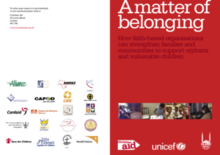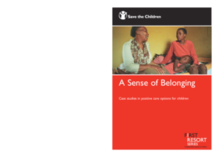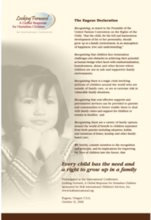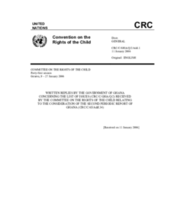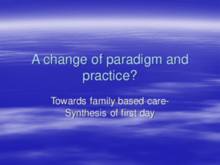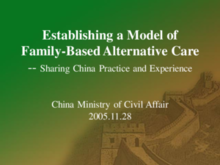Displaying 2131 - 2140 of 2221
This document provides an overview of the evolution of treatment family foster care in the US for youth with emotional or behavioral disorders, as an alternative to psychiatric hospitalization or long-term residential treatment.
A situation analysis of laws, policies, and structures relevant to child protection in Sri Lanka, and a set of recommendations for improving the alternative care system.
A guide for faith-based organizations working in developing countries on issues related to orphans and vulnerable children. Contains examples of successful community-based and family support care programs throughout the world that are run by faith-based groups. Discourages the use of institutional care and orphanages.
Save the Children's "First Resort" series focuses on the needs and rights of children who, for a wide variety of reasons, are lacking adequate parental care. This third paper in the First Resort series presents practical examples of the range of options available to policy-makers, practitioners and others with responsibilities for the care and protection of children without adequate parental care.
Discusses the movement towards treatment family foster care for behaviorally and emotionally challenged children.
This document provides a review of outcome research on family foster care services in Australia, Italy, United Kingdom, and United States of America. Further research directions to improve family foster care are suggested.
Recognition of the crises affecting children and a commitment to improving the lives of children.
This document provides written replies by the Government of Ghana concerning t issues received by the Committee on the Rights of the Child relating to the consideration of the second periodic report of Ghana. This includes issues related adoption and fostering.
This presentation was given at the Alternative Care Workshop in Bangkok in November 2005. The presentation describes the slow shift toward family-based care options in the South East Asia region.
This presentation was given at the Alternative Care Workshop in Bangkok in November 2005. It provides an overview of the situation for children without parental care in China, the legal framework for child protection in the country, and the social welfare institutions that support children's care.

